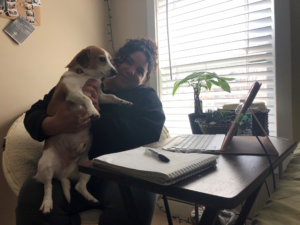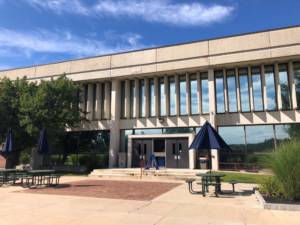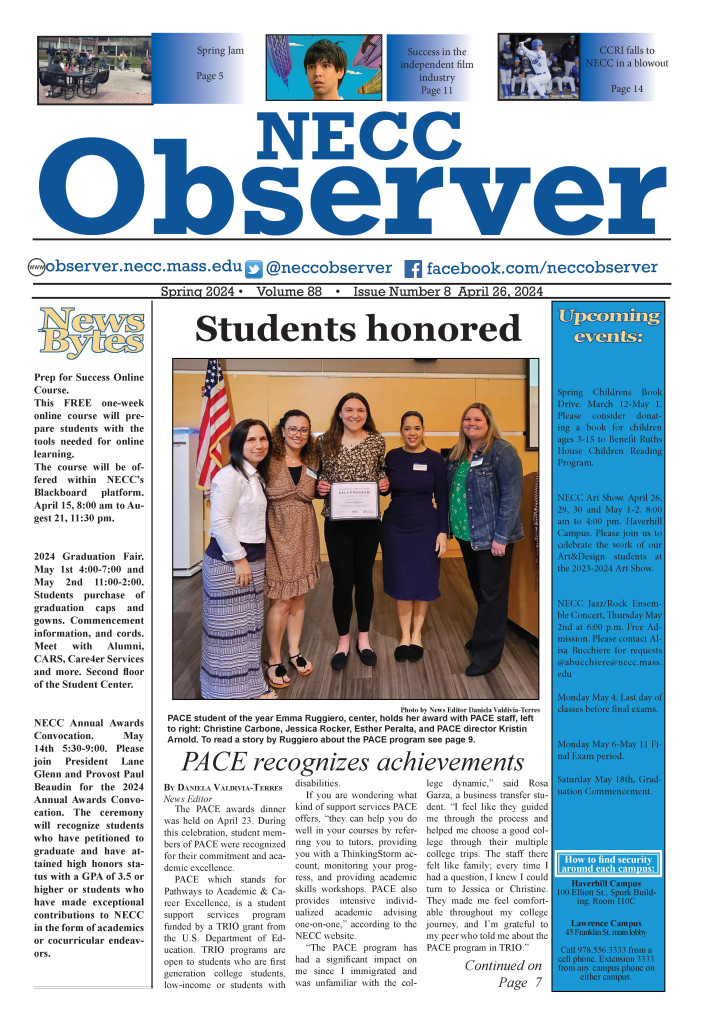As if living through a pandemic isn’t anxiety inducing enough by itself, social media rumors are now being spread about a mysterious “murder hornet” that has migrated to the United States.
In late 2019 two bees were spotted in Washington, later determined to be Asian giant hornets, the world’s largest wasp according to National Geographic.
Andrew Venditti, a communications major at NECC said the “murder hornet” sounds like it came out of a sci-fi movie. The arrival of the hornets is still a mystery to researchers. Venditti said “I can’t imagine a hornet flying across an ocean, so they probably got here stowed away on a boat or plane.”
Maddy Gosselin, NECC alum and current resident of Bridgewater MA, said she hasn’t even heard of the hornets. “We’ve already got corona, I don’t think anybody wants any more foreign killers entering the country,” said Gosselin.
Retired University of Montana bee expert Jerry Bromenshenk said that the media hype for the hornets is “turbo charged.”
While National Geographic states that they are able to kill humans, the danger lies in the threat they pose to honeybees. The hornets can wipe out entire honeybee colonies. “Hopefully we can get rid of them before they do too much damage to the indigenous honey bees that are already in lower numbers than they should be,” said Venditti.
Caitlin Camiliere, a New England native currently residing in Lander, WY, said she doesn’t know much about the bees but she heard that they’re killing native U.S. bees and that makes her sad. “We are already struggling to keep our pollinators healthy as it is, what with climate change and industrialization.” She added, “If those dirty hornets think they’re gonna kill the last remaining pollinators they’ve got another thing coming!”
Associated Press reported that since a lone hive was wiped out in Canada last September no Asian giant hornets have been spotted in 2020. Bug experts told AP that instances in which these hornets have killed are rare and said for humans “it’s a really nasty sting.” The number of people that seek medical attention after the stings is incredibly small.
To put it in context, the World Health Organization says that mosquitoes are responsible for millions of deaths yearly worldwide while Asian giant hornets kill a few dozen people a year at most, and in Asia people have lived with this hornet for thousands of years.
CBS News reported that a public outreach campaign has begun to report sightings of the wasps. Entomologist Chris Looney says, “don’t try and take them out yourself if you see them.” He says any sightings should be reported to the Department of Agriculture. God only knows what next month will bring us.








